Role of law in combatting air pollution and protecting public interest
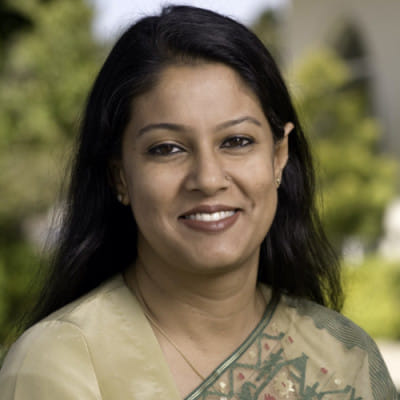
Syeda Rizwana Hassan,
Chief Executive, BELA
In many cases, the environmental impact of a development project is not considered properly. This is not at all acceptable because it is clearly mentioned in our Constitution that no harm can be caused to the environment and public health through any development project. Through our unmindful activities, we are putting the life of our future generations at risk. We are failing to adhere to our constitutional obligation of protecting the environment.
This is a matter of regret that a draft of the Clean Air Act has been lying gathering dust in government office for the last four years. Through this roundtable we would like to draw the attention of the government to the urgency of passing the act.
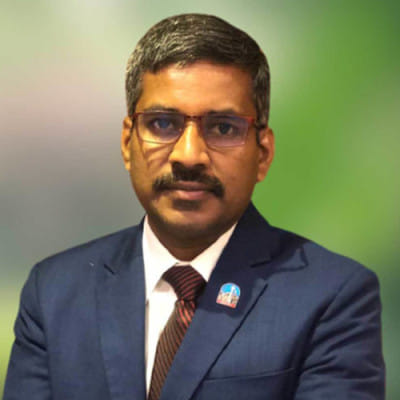
Professor Dr. Ahmad Kamruzzaman Majumder, Founder & Director, Centre for Atmospheric Pollution Studies (CAPS)
The Economist Intelligence Unit (EIU) reported in 2021 that Dhaka was the world's fourth least livable city. According to Health Effect Institute, 158,000 people died in Bangladesh in 2018 due to air pollution. WHO found that five of the top ten diseases causing death in Bangladesh are linked to air pollution.
The major sources of air pollution in Dhaka are road excavation and construction activities, brickfields and industries, vehicles, transboundary pollution, household and cooking stoves, and waste burning. Besides, overpopulation, geographical location, weather, and poor urban planning contribute to air pollution in the city. There are also serious gaps in the implementation of the existing laws related to the protection of health and environment.
In the last six years, we got only 38 days of good air while the air quality was very unhealthy for 385 days. If we look at the monthly variation in the Air Quality Index (AQI) of Dhaka city, we will see that January and December are two most polluted months while during the rainy season (June to September) the air quality is quite good.
During the dry season, we inhale unhealthy to extremely unhealthy air 89 percent of the time. We recently conducted a nationwide survey. The survey reveals that Gazipur is the worst polluted city in the country, and there the average PM2.5 concentration is 263.5 μg/m³ which is 4-5 times higher than the national daily average. During the Covid-19 lockdown, we managed to curb air pollution by only 23 percent while Kolkata, New Delhi, Lahore, and Kathmandu reduced air pollution by around 45 percent.
We want to put forward some short-, mid-, and long-term suggestions to control air pollution in the country. Short-term measures include keeping construction sites covered to prevent the spread of dust, shutting down illegal brick fields and ensuring coordination among renovation works. Increasing use of blocks and clean fuel, improving traffic management, conservation of waterbodies and plantation of more trees are examples of mid-term solutions. Finally, as long-term measures, we should formulate specific plans to prevent air pollution during the dry season, establish an Air Pollution Control Commission, enact and implement the Clean Air Act 2019, and introduce environmental cadres in the Bangladesh Civil Service.

Dr Asif Mujtaba Mahmud, Secretary General, Bangladesh Lung Foundation
Air pollution is the fourth biggest threat to human health. If we look at air pollution-related deaths globally, we will see that 30 percent of people die from lung cancer, 20 percent from stroke, 25 percent from heart disease and 45 percent from various other lung-related infections. Seven million people die from air pollution each year. In Bangladesh, around two lakh people die every year due to air pollution, which is comparatively higher than air pollution-related deaths in developed countries such as the USA and Russia.
In Bangladesh, the main cause of indoor pollution is wood burning and cow dung. Rural women who use these materials are the ones who suffer the consequences.
I want to echo what Al Gore said, "Pollution should never be the price of prosperity."
Even healthy and athletic people could be affected by air pollution, so it's not only people with underlying health conditions who are likely to suffer. During the Covid-19 pandemic, the leading cause of high rates of communal transmission was deadly air pollution.
If we want to prevent air pollution, the first step should be to address the public transport system. Besides, we should focus more on recycling. Planting trees is also an important step that will help us improve the air quality. We must stop deforestation.
Bangladesh Lung Foundation believes clean air is a basic human right. We will continue our effort to ensure clean air for everyone.
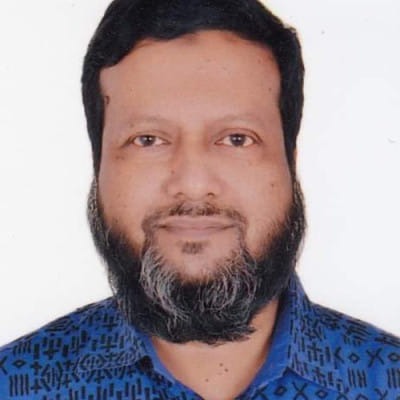
Dr Kazi Saifuddin Bennur,
Joint Secretary, Bangladesh Lung Foundation
Five or six years ago, we received some patients from a particular area of Patgram Upazila, Lalmonirhat, who were suffering from severe breathing problems. We diagnosed interstitial lung disease. All of them were involved in stone crushing jobs. This is a type of silicosis in which the lung is significantly infected with compounds of sand. It indicates that workplace air pollution is quite a big problem in Bangladesh, and we must address it seriously.
Syeda Rizwana Hasan, Chief Executive, BELA
Our Constitution states that the focus should not only be on protecting the environment, but also on improving it. Article 32 of the Constitution guarantees the right to life, but how can one enjoy life without pollution-free air?
In addition to urban pollution, we should also talk about air pollution in different occupations. Garments, shipbreaking, and stone-crushing are hotspots for air pollution. That is why it is essential to monitor working environments that are indoor, congested, and prone to pollution.
The Department of Environment (DoE) does not monitor the level of asbestos in the shipbreaking zones, and this is a cause for concern. According to the ILO, IMO and Basel Convention, the shipbreaking sector is one of the deadliest sectors to work in worldwide. However, the DoE has changed the category of this industry from red to orange upon receiving a request from the industry minister.
According to government records, 71 people died due to silicosis in Patgram, but now the government is saying everything is okay as workers are wearing masks while crushing stones.
In the last four years, we did not witness fresh air for even a week in any the four years. The government has failed to finalise the proposed draft of the Clean Air Act. We have submitted our extensive study to the government after engaging all the stakeholders with the support of the World Bank and the Swedish Embassy. It is the duty of the DoE to alert the people about acute air pollution and take the required steps to curb it. Even if the proposed Clean Air Act is not finalized, the government should take steps to curb the high level of air pollution. Some soft targets can also be set. For example, local governments can take the initiative of roof gardening in their areas. Greenery has an impact on improving the air quality.
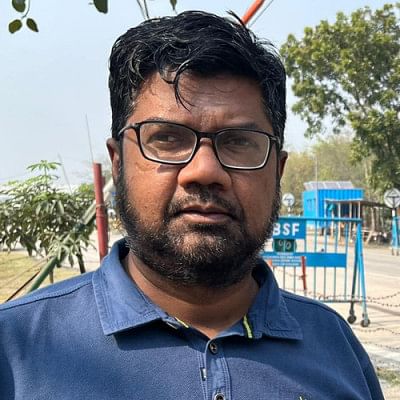
Mohamad Iqbal Ahmed,
Senior Environment Specialist, World Bank
In the past, we had seen in our studies that the brick industry was the cause of 57 percent of air pollution. This number has fallen in recent years, but now the cement, transportation and construction industries are contributing even more to air pollution. In 2017, we started working on the draft of Clean Air Act. After working extensively and discussing with many stakeholders, we submitted the final version of our draft in 2019. This Act should be finalised as soon as possible, so that those responsible for pollution are held accountable and air pollution can be controlled in the near future.
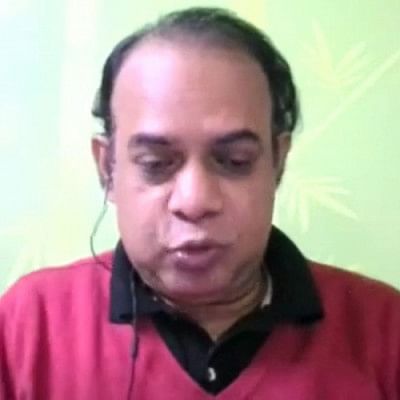
Mohammad Ziaul Haq, Director, Dhaka Zone, Department of Environment
Air pollution is a complex process that is dependent on a variety of factors. For instance, a study found that not all of Dhaka's pollution was caused internally. Five percent of the pollution was attributed to natural causes, while 25 percent was a result of transboundary emissions from neighbouring countries like India. The remaining 70 percent is internal, and this is where we should put all-out efforts. The DoE has drafted some guidelines for different government institutions; however, these have not been strictly followed. In the future, it is crucial that all DoE guidelines for reducing air pollution are strictly followed by all government and private bodies.
By 2025, we will not be using old bricks for any sort of government-related work. We must ensure that the AQI is kept below 150 which is categorised as moderate. If this is ensured, then our existing problems will be somewhat addressed. But to achieve this, we must all work together.
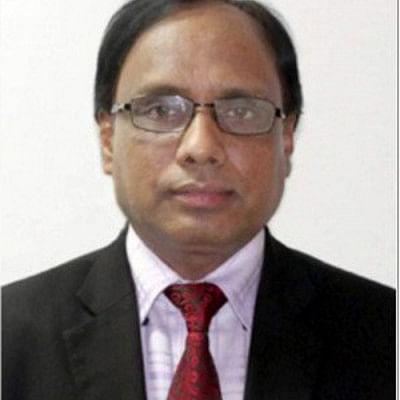
Md Selim Reza, CEO, Dhaka North City Corporation
We are facing a crisis, and we need to address this immediately. Our air quality must be improved drastically to prevent the rise of airborne diseases. Mobile courts should be put in place to check air pollution.
An increasing number of people are coming to Dhaka and with them the number of high-rise buildings is also increasing. The demand for water, gas and electricity is also increasing. Establishing such infrastructures requires extensive excavation and construction work, and that pollutes the environment further.
A major challenge is that around 49,000 people reside in every square kilometre in Dhaka. There is no space on the roads and footpaths for people anymore. That is why we must come together and formulate a plan to reduce the population density in Dhaka. Otherwise, we cannot address the issue of air pollution properly.
Our honourable mayor has declared a war against pollution. The participation of the various stakeholders present at this meeting is needed to properly coordinate and execute any plans to reduce environmental pollution in Bangladesh.

Dr M A A Shoukat Choudhury, Professor, Department of Chemical Engineering, BUET
The western and north-western wind direction brings a lot of dust and pollution from bordering areas, as well as from the Middle East to Bangladesh. There are regional networks that impose restrictions on how much pollution different countries/cities can generate. At the same time, regulations are also being established to reduce pollution from neighbouring countries. We must ensure that these restrictions and regulations are properly enforced on the countries which are responsible for increasing the pollution in Bangladesh.
In our country, activities such as construction, excavation, and cleaning of the sewer system pollute the environment. While we cannot fully stop these activities, we should ensure adequate protective measures to reduce the pollution.
Even though we are talking about reducing the number of brick kilns, the alternative, which is concrete blocks, also causes a lot of pollution in the production process. That is why we need to establish a proper alternative before we switch from bricks. I would suggest that the government create a roadmap to address the issue of air pollution over the next 10 to 20 years.

Mizanur Rahman, Former President, Bangladesh Brick Manufacturing Owners' Association
Our major problem is the delay in enacting the Clean Air Act. Without proper execution and implementation, we cannot reduce air pollution. The government is saying that they want to eradicate brick burning completely. But it sounds quite impossible as there are no clear instructions on how we will achieve this goal. We should have a proper alternative to using bricks.
There is a lack of planning and coordination between the different departments of the government. A meeting should be held between the relevant ministries to establish a clear plan on how we will tackle the current environmental crisis. All private stakeholders who are present here today should also assist the government in formulating the plan.
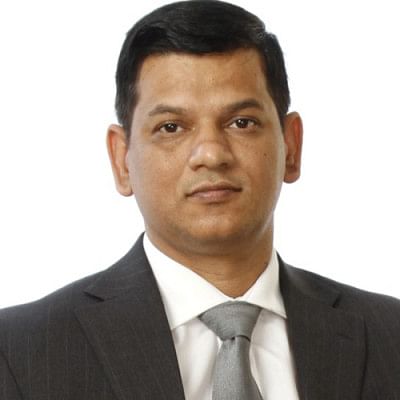
Kazi Mizanur Rahman, Director and Company Secretary, Lafarge Holcim Cement
Large industries are a major source of air pollution. These industries should be the ones to take charge and adopt the Clean Air Act into their company policies. The parameters of this Act are not too difficult, and if the companies adopt them, then they will benefit in the long run. The Clean Air Act should be updated to ensure that it meets the international standards.
Equal implementation everywhere is important. Lafarge has a cement grinding unit in an industrial area. We ran an annual ambient air quality check and found that the AQI near our factory is higher than the permitted limit. To address this, we introduced dust collectors and other necessary equipment. However, other factories in the area are not maintaining the same standard. Therefore, all of us must work together to improve the air quality.
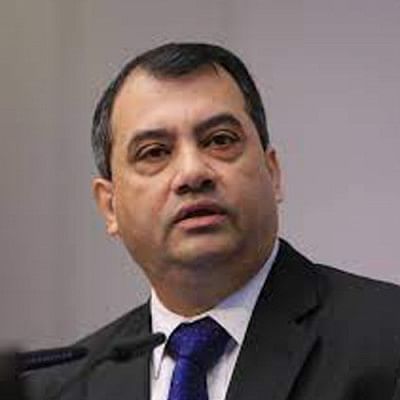
Saber Hossain Chowdhury MP,
Chairman, Parliamentary Standing Committee, Ministry of Environment, Forest and Climate Change
Every year two lakh people die due to air pollution. It means that during this two-hour-long programme, almost 45 people have died due to air pollution. In comparison, 30 people died yesterday (February 4, 2022) due to Covid-19. This just shows the gravity of the situation in terms of air pollution, and why we need to start taking this more seriously. We have been proactive in combating the Covid-19 pandemic, and we must do the same to curb air pollution in Bangladesh.
Covid-19 taught us the importance of public health. In Bangladesh, we are not thinking about the health of the entire nation. Instead, we are approaching it on a patient-by-patient basis. If we want to address the issue of air pollution, we must realise the importance of our public health sector. That is why we must allocate a higher portion of our upcoming budget to public health issues.
Manpower shortage is another challenge. The DoE is currently understaffed, and we are not being able to fill the vacancies.
We should remember that prevention is always better than cure. So, while we should look to strengthen public healthcare in the country, our priority should be to reduce air pollution.
Sometimes government institutions are involved in polluting the environment. So how can we tell the public to not pollute the environment? Here, the government should be the one to set an example for the public as well as the private sector.
Syeda Rizwana Hasan, Chief Executive, BELA
There are 18 districts where the air is very polluted, and some sectors are causing occupational hazards and pushing people towards death. We are not against the development targets of the government, but we cannot destroy the environment for the sake of development.
Our priority should be to establish regulations and take appropriate measures to reduce the pollution in areas which are highly polluted and in the danger zone. Here, the City Corporation has an important role to play. They have to take charge of greening our cities. In urban areas, we no longer have a place for gardening anymore. City Corporation should therefore make it mandatory for buildings to have rooftop gardens.
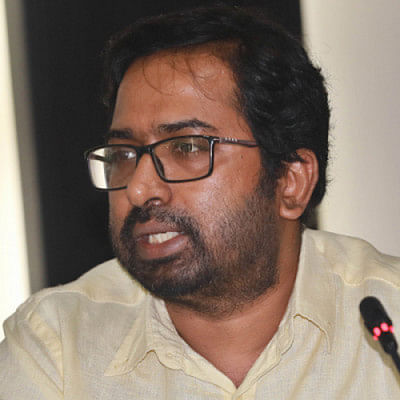
Shamsuddoza Sajen, Commercial Supplement Editor, The Daily Star & Moderator of the session
Bangladesh is one of the most polluted countries in the world. Air pollution has been seriously affecting every aspect of our life including health and economy. A Greenpeace study (2018) revealed that around 96,000 Bangladeshi children died before their fifth birthday in 2018 because of exposure to PM2.5. We lose almost five percent of our GDP due to air pollution.
Unplanned construction, brick kilns, and emission from vehicles are the three key reasons behind air pollution in Dhaka city. To address this issue, the government has formulated several laws and policies (e.g., Bangladesh Environment Protection Act 1995, National Environment Policy 2018, Brick Manufacturing and Kiln Establishment (Control) Act 2013 (revised in 2018)). However, there are serious gaps in the implementation of these regulations.
The draft of Clean Air Act was prepared a long time ago. We urge the government to enact the law immediately.
Recommendations
- The Clean Air Act-2019 should be passed immediately, and adequate measures should be taken to implement it effectively.
- The government should create a roadmap to address air pollution issues.
- A forum should be established comprising all the relevant ministries to tackle air pollution.
- Introduce environmental cadres in the Bangladesh Civil Service.
- It should be mandatory for large industries that are responsible for air pollution to implement the Clean Air Act.
- The City Corporation should make it mandatory for buildings to have rooftop gardens.
- Mobile courts should be put in place to check air pollution.
- Increase use of concrete blocks and find a sustainable alternative to brick.
- Establish a separate Air Pollution Control Commission.
- Effective measures should be taken to control workplace air pollution.

 For all latest news, follow The Daily Star's Google News channel.
For all latest news, follow The Daily Star's Google News channel. 



Comments